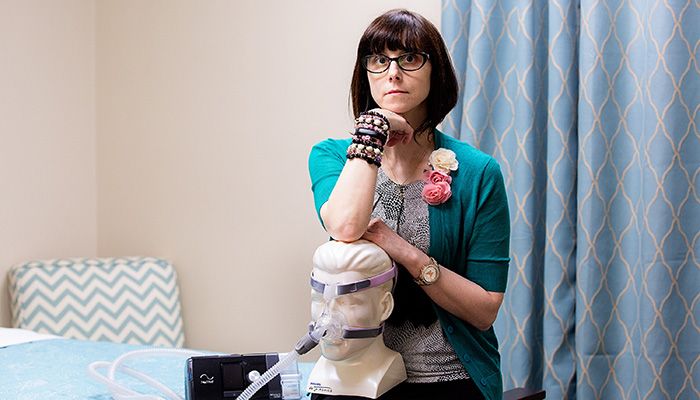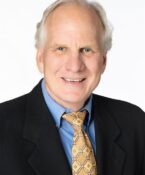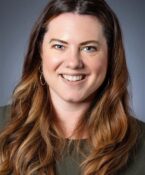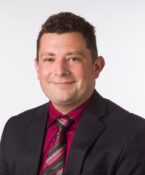A more patient-friendly solution for sleep apnea
Masks worn by those with sleep apnea can leak at night and be so uncomfortable that they often drive users away from treatment.
But a new system being developed by researchers at UNT Health Science Center and The University of Texas at Arlington could make it easier for the estimated 18 million people with sleep apnea to get a good night’s rest.
The user-friendly system alerts the individual whenever there’s an airflow leak in their PAP (positive airway pressure) machine, said Brandy M. Roane, PhD, Assistant Professor of Internal Medicine. Users will be able to decide if they want to be alerted by sound, lights or vibration – or through an app that tells them what’s wrong and the best way to address it.
“Some people may want to use a song or ring tone that is less disruptive to a bedmate,” Dr. Roane said. “Someone who is deaf may prefer to get a visual cue, such as color popping up on their phone.”
The alert system might be just what it takes to motivate the roughly 50 percent of patients with sleep apnea who give up on the treatment to keep using it.
An air flow leak is one of the most common reasons people stop using the nighttime masks, said Eileen Clements, Director of Research at The University of Texas at Arlington Research Institute.
“The system we developed at the research institute will alert the user if there is an air flow leak so that the user can make an informed adjustment to the mask or system or sleep position or some other behavior that helps them get the most benefit from their PAP therapy,” Clements said. “Of course, the adjustment has to be made by the user, but they would utilize information from the system as well as guidance from their therapist or doctor.”
Sleep apnea is serious and if untreated can cause high blood pressure, memory problems, impotence and headaches. It also contributes to accidents.
“The hope is that people who use this will benefit from PAP therapy by waking up with more energy,” Dr. Roane said. “And they won’t fall asleep at work or while they are driving.”






Social media